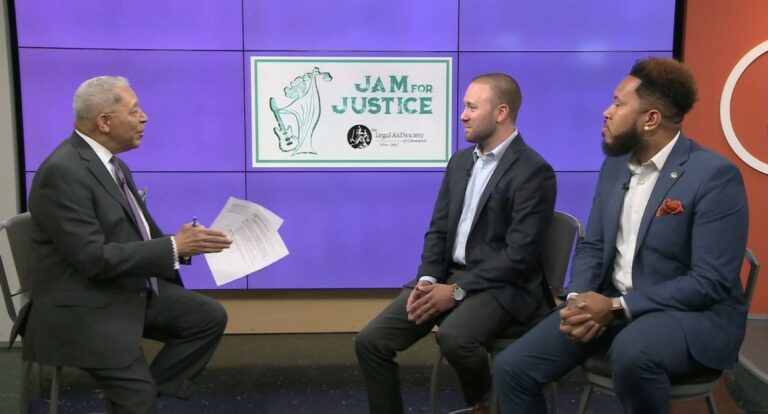What are Miranda Rights?
Thanks to prime-time legal television and movies, Miranda protections are likely familiar to the general public:
“You have the right to remain silent. Anything you say can and will be used against you in a court of law. You have the right to an attorney. If you cannot afford an attorney, one will be provided for you.”
These protections are procedural safeguards established in the 1966 landmark decision Miranda v. Arizona. This case held that the Fifth Amendment privilege against self-incrimination, and the Sixth Amendment right to counsel, respectively, extend to situations in the legal system outside of the courtroom. Miranda applies the moment a suspect is taken into custody and means that once law enforcement detains someone, they are not permitted to interrogate without first informing the detainee of their constitutionally protected rights.
Purpose of Miranda
The Miranda rule serves dual purposes. First, courts have acknowledged that police forces are trained to use both psychologically and physically coercive methods during interrogations. These tactics may conflict with Fifth and Sixth Amendment protections. Requiring law enforcement to inform suspects of their privilege against self-incrimination and legal representation before such maneuvers enables the judiciary to safeguard citizens’ rights while also allowing law enforcement to function.
Second, prior to the June 23, 2022, decision in Vega v. Tekoh, courts enforced this protection by ensuring that only properly obtained evidence from suspects would be used in criminal cases against them. Additionally, it allowed a civil remedy against law enforcement who failed to provide Miranda rights properly.
Many accountability laws like Miranda trace back to protections set up by the federal government during the Reconstruction Era. They were established to protect the civil rights of formerly enslaved citizens against state and local institutions. It was under one such law, the Ku Klux Klan Act of 1871, which a civil rights claim was brought against the Los Angeles Sheriff’s Department in Vega v. Tekoh.
Vega v. Tekoh
Terence Tekoh was a medical professional who law enforcement failed to Mirandize when he was taken into custody. While being interrogated, he confessed to a crime after his family was threatened with deportation. He was brought to trial twice based on the non-Mirandized confession and was found “not guilty” both times. Tekoh alleged he was falsely accused and claimed he was “strong-armed” into confessing. In 2021, he brought a claim against the government, alleging his Fifth Amendment rights were violated. Breaking with the nearly sixty-year rule, the United States Supreme Court decided that suspects no longer have civil recourse against law enforcement who fail to issue Miranda warnings.
How has Miranda Changed after Tekoh?
Prior to Tekoh, if a suspect was coerced into a confession, and was not Mirandized, the suspect would have grounds to sue under federal civil rights law. The new interpretation of Miranda still requires officers to remind suspects of their rights. However, if the officer fails to do so, a suspect now has no civil recourse.
In addition, if the police previously failed to Mirandize a suspect, the information obtained would likely be inadmissible in court, and the prosecution would not be able to use the evidence in such cases. However, the lines are now less clear. In her dissent, Justice Kagan indicated that a possible alternative remedy might be a motion to suppress evidence but noted that this was insufficient to the strength of Miranda protections and would likely lead to more wrongful convictions.
What You Need To Know About Your Miranda Rights in Ohio
Importantly, the protections afforded under the Fifth and Sixth Amendments to the United States Constitution have not changed. Here’s what to do if detained by law enforcement with respect to these rights:
- DETERMINE IF YOU ARE IN POLICE CUSTODY. The right to remain silent and to legal counsel applies if you are in police custody. If you have been stopped by the police but are unsure if you are in custody, you have the right to ask the officer if you are being detained. If you are free to leave, you have the right to leave immediately without making any additional statements. If you are being detained, you have the right to invoke your right to silence and ask for a lawyer.
- REMEMBER YOU HAVE THE RIGHT TO REMAIN SILENT. This right may be utilized at any time by simply informing the officer that you are invoking your right to remain silent. You do not need to offer explanations if asked by law enforcement. By invoking your right to silence and waiting to speak with your lawyer before making statements, you are exercising your constitutionally afforded protections.
- REMEMBER YOU HAVE THE RIGHT TO A LAWYER. If you have been arrested, taken to the police station, or are being questioned by police, you have the right to counsel right away, even if a private lawyer cannot be afforded. Law enforcement is required to permit you to make a local call to a lawyer, or anyone you choose, within a reasonable amount of time upon arriving and before you are questioned, if you ask. It is important to know that this call may likely be recorded.
Click Here For More Tips on How to Effectively Handle Interactions with Law Enforcement
* * *








